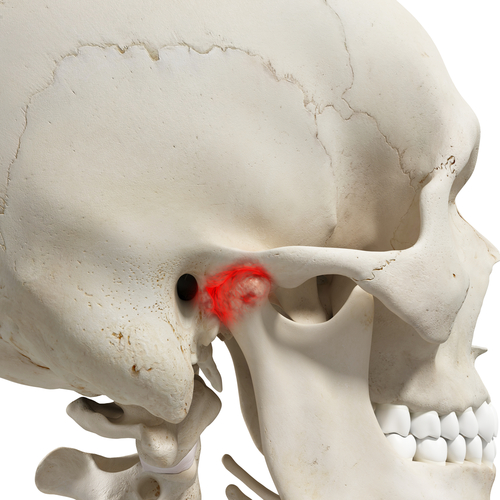Resource Library
Start Reading

Millions of Americans suffer from headaches, earaches, and facial pain related to the temporomandibular joint (TMJ). This joint attaches the lower jaw to the bone on the side of the head, controlling the jaw’s ability to move side-to-side and up-and-down. Disorders of the jaw joint and chewing muscles can vary widely. A TMJ dentist can help by diagnosing the causes of jaw pain and proposing a treatment plan appropriate to the particular disorder.
TMJ disorders tend to fall into three major categories:
It is possible to have more than one of these conditions at the same time. People may have other health problems that worsen the symptoms of temporomandibular joint disorders, such as chronic fatigue syndrome and fibromyalgia. Because these conditions share symptoms with TMJ, it is thought that they may have similar mechanisms of disease. However, much remains unknown about the underlying causes of TMJ disorders. Stress, a misaligned bite, teeth grinding, and jaw injury can act as contributing factors.
If you are suffering from chronic jaw pain, teeth grinding, or believe that your headaches may be related to the TMJ joint, you should plan to visit a prosthodontist. A prosthodontist specializes in structural issues that affect a patient’s ability to chew, speak, and other oral functions. Because temporomandibular disorders often involve multiple aspects of orofacial functioning, a prosthodontist is often the most qualified TMJ dentist to diagnose this complex condition.
 Your prosthodontist will ask you to describe symptoms, take a detailed medical and dental history, and examine problem areas in the head, face, and jaw. You should try to answer questions about your symptoms as accurately as possible and be sure to mention if you have other medical problems, such as a history of ear or sinus infections. Imaging studies may be recommended to ascertain whether there are structural or inflammatory problems involved.
Your prosthodontist will ask you to describe symptoms, take a detailed medical and dental history, and examine problem areas in the head, face, and jaw. You should try to answer questions about your symptoms as accurately as possible and be sure to mention if you have other medical problems, such as a history of ear or sinus infections. Imaging studies may be recommended to ascertain whether there are structural or inflammatory problems involved.
Common symptoms of TMJ include:
TMJ disorders often disrupt patients’ daily routine of brushing and flossing teeth, which can have other long-term impacts on their dental health. That is why it is so important for patients suffering from these symptoms to seek treatment as soon as possible. Best practice indicates that patients should try simple treatment before moving on to more advanced treatment options. Depending on the particular nature of your condition, treatment plans may employ different strategies:
A qualified prosthodontist at Penn Dental Family Practice can help by creating a customized plan to treat your TMJ pain. Our prosthodontists treat a variety of oral health issues that can overlap and contribute to jaw/head pain, including dental restorations, snoring/sleep disorders, jaw joint problems, and oral cancer reconstruction. If you’ve been thinking about seeing a TMJ dentist, we encourage you to make an appointment with our specialists by calling 215-898-PDFP today.